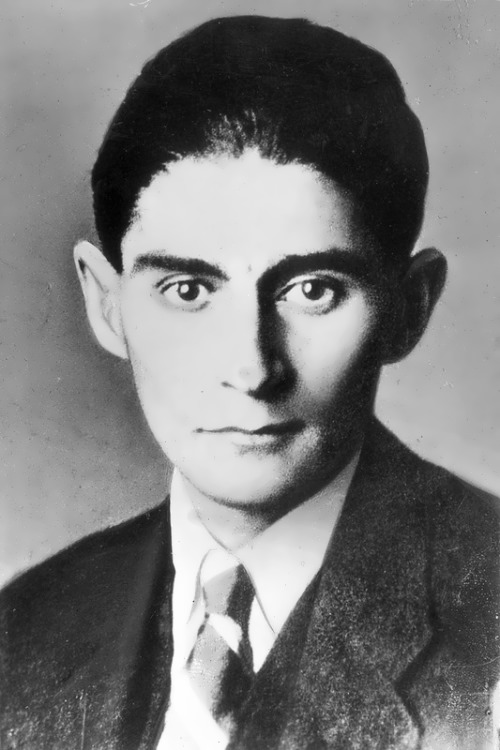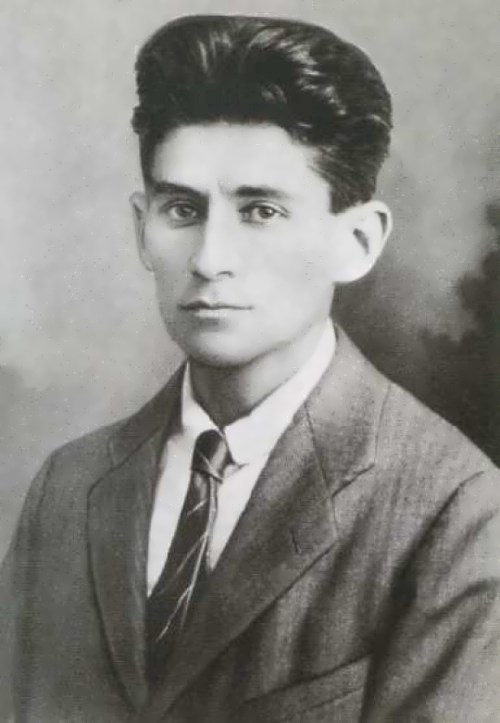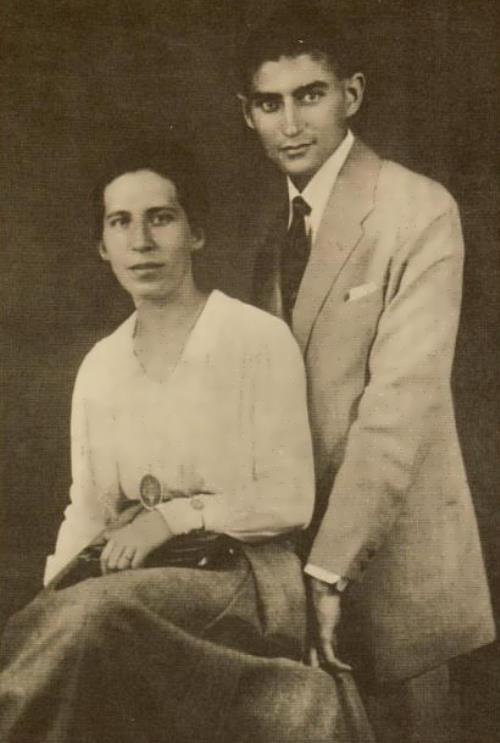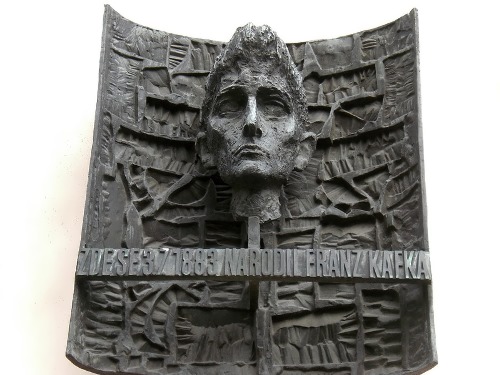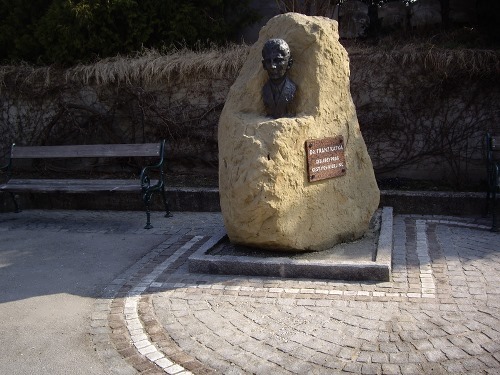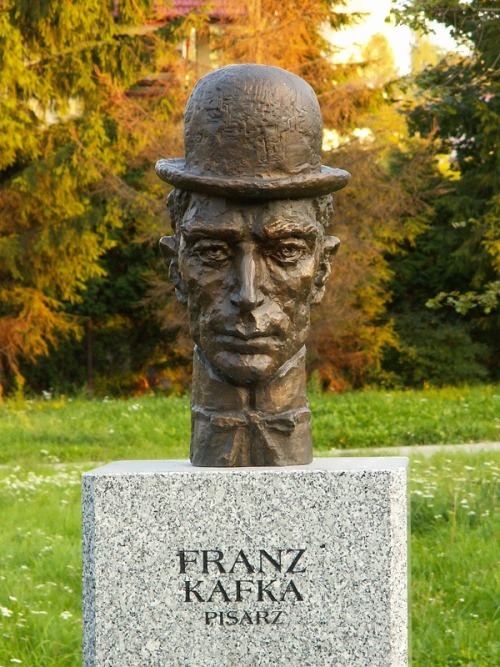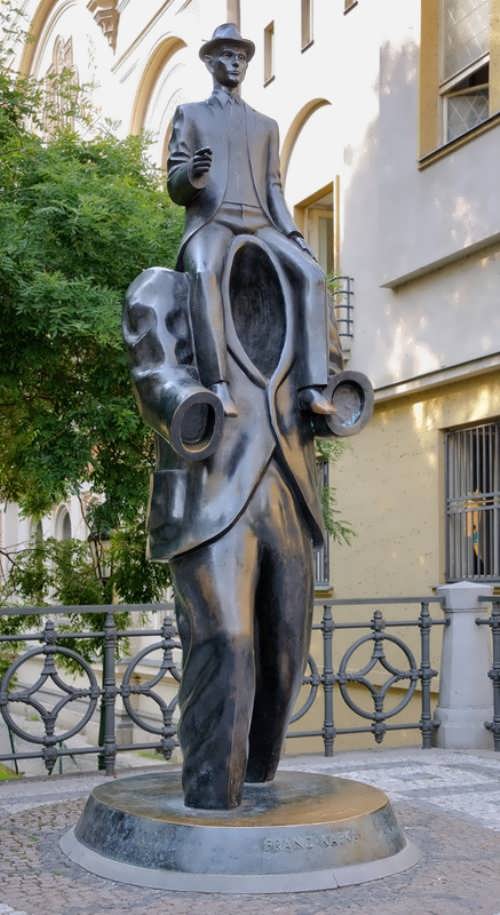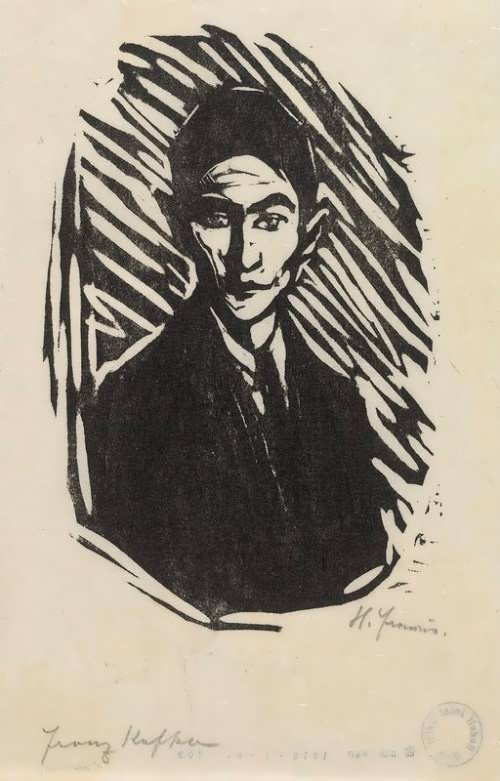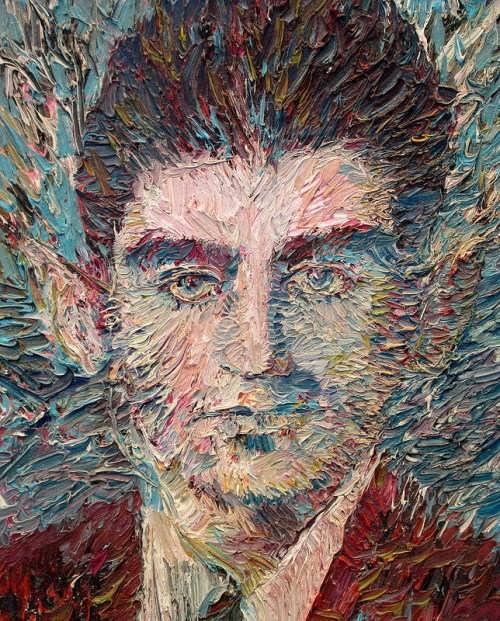Franz Kafka – great writer
Franz Kafka was one of the greatest German-language writers of the XX century. Most of his work was published posthumously. His works filled with nonsense and fear of the outside world and the highest authority are unique phenomenon in world literature. Many later writers have acknowledged Kafka’s influence, including Jorge Luis Borges, Milan Kundera, Gabriel García Márquez, Carlos Fuentes, and Salman Rushdie.
Franz Kafka was born on July 3, 1883 in Prague, Austria-Hungary. His father – Herman Kafka (1852-1931), came from a Czech-Jewish community in South Bohemia, since 1882 was a wholesaler haberdashery. The mother of the writer Julia Kafka (nee Etl Levy) (1856-1934) was the daughter of a wealthy brewer. Kafka had two younger brothers and three younger sisters. Both brothers died before Kafka was 6 years old.
Kafka attended only German schools: from 1893 to 1901 the most severe grammar school, the Deutsches Staatsgymnasium in the Old Town Square, and from 1901 to 1906 the Karl Ferdinand University of Prague. As a student Kafka made acquaintances with other intellectuals and aspiring artists. He befriended Max Brod, a lifelong friend and confidant, to whom he would later entrust his literary estate.
In June 1906 he graduated with a degree of doctor of jurisprudence. Then he worked as a clerk in an insurance office. Work for the writer was a secondary occupation and he hated his boss, co-workers and customers. Literature was on the first place for him justifying his whole existence.
Austerity, self-doubt, self-condemnation and a painful perception of the world – all these qualities are well documented by the writer in his letters and diaries, and especially in the Letter to my father. Due to the early break with parents Kafka was forced to lead a very modest life and often change flats. Chronic diseases harassed him; apart from tuberculosis, he suffered from migraines, insomnia, constipation, impotence, abscesses and other diseases. Kafka believed that vegetarian food could help him to cope with diseases.
As a schoolboy, he was active in organizing literary and social events, made an effort to organize and promote theater performances.
Kafka’s first collection of stories was published in 1913 under the title Betrachtung (Contemplation).
Between 1912 and 1917, Franz dated Felice Bauer in Berlin. They were engaged twice, and he canceled the engagement two times. The story Das Urteil (The Verdict), the writer dedicated to his fiancee, Felice, and published the following year in Brod’s annual, Arcadia.
Kafka’s next work, completed in May 1913, was the story Der Heizer (The Stoker), later incorporated in his fragmentary novel Amerika and awarded in 1915 the Fontane Prize.
The year 1913 saw the publication of Kafka’s bestknown story about the man degraded to an animal, Die Verwandlung (The Metamorphosis).
Kafka’s second bride was Julia Vohrytsek, but the engagement was soon again dissolved. In the early 1920s, he had a love affair with a married Czech journalist, writer and translator of his works – Milena Jesenska.
In 1923, Kafka together with nineteen-year-old Dora Dymant moved to Berlin in the hope to move away from the influence of the family. A few months later he returned to Prague.
Franz Kafka died on June 3, 1924, Klosterneuburg, First Austrian Republic.
During his lifetime only a few short stories were published. Before his death, Kafka instructed his friend and literary executor – Max Brod – to burn, without exception, all of his works. His lover Dora Dymant really destroyed the manuscripts, which she possessed, but Max Brod did not obey his will and published much of his work, which soon began to attract attention. All his published works, except for a few letters to Milena Jesenska, were written in German.
One of Kafka’s most important writings is the 100-page letter to his father, written in November 1919 as an attempt to clarify his conscience before his father and to assert his final independence of the latter’s authority.
Kafka once said that Gustave Flaubert, Franz Grillparzer, Fyodor Dostoevsky, Heinrich von Kleist, and Nikolai Gogol were “his blood brothers”.
Felice Bauer and Franz Kafka
Kafka’s father was over strict with his children and little Franz used to close himself in the room and write stories. When the young man graduated from the University in Prague, he got a job in an insurance company, the work which brought a good income. Soon he became financially independent, but not self-confident. He remained shy, uncommunicative and extremely insecure. Franz was tall, but too thin, that was due to poor health. He did not like his own body, he was ashamed of it. He exaggerated his own awkwardness, women liked him.
“He was shy, restless, gentle and kind, – one of his friends recalled many years later. – He saw the world filled with invisible demons”.
Franz had never worn a coat, did not change clothes, did not eat meat, chocolate, tea and wine.
On August 13, 1912 Kafka met Felice Bauer, twenty-five-year-old girl. They began their correspondence. In letters the shy young man was resolute, confident and outspoken. After six months of correspondence, he decided to meet her.
Franz was quite satisfied with the date and soon he wrote: “I love you so much, that I’d like to live forever, if I could be with you.” Then he offered his beloved to marry him and she agreed. However Kafka realized that there were only his emotions and he didn’t want to leave the habitual way of life and decided to step back.
Every day he sent letters to Felice, where reported on his worst qualities. But she didn’t pay any attention. So he said they had to break down.
After that, their relationship cooled a bit, but suddenly Franz sent a passionate letter in which he again offered to marry him.
“I cannot live with her and cannot live without her” – Franz complained to his friend Max Brod.
Finally, Kafka and Bauer got engaged. Engagement took place in Berlin in 1914. Kafka suffered and waited for a suitable moment to abandon the marriage. Felice’s friend Greta “helped”. Greta corresponded with Kafka and possibly had a love affair with him. She showed Felice letters where Kafka gave quite unflattering comments about his beloved. So, Felice terminated the engagement.
However, their correspondence did not stop.
Three years later Kafka made a marriage proposal again and she … agreed. Felice came to Prague, and at the beginning of July 1917 their reengagement took place. However, a month later the writer had pulmonary bleeding. He believed it was a sign from above and decided not to marry the girl.
After a long affair with Felice Bauer, Kafka dated a young married woman, Milena Jesenska in 1920. Three years later, she was replaced the Polish Jew, young Dora Dymant. Unhappy bachelor died at her hands on June 3, 1924.
Felice Bauer got married, she had two children, and she lived a long life.
